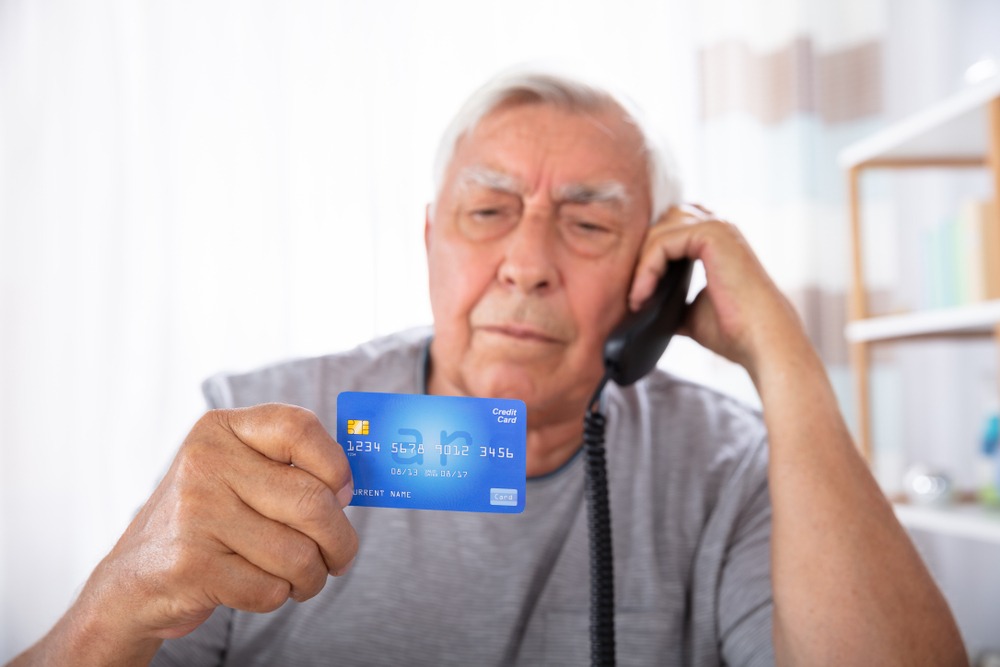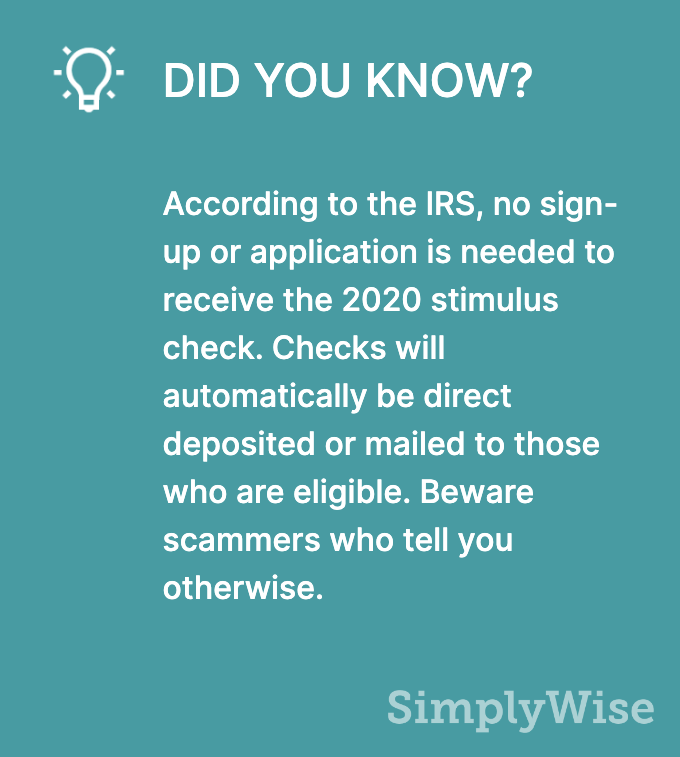
Last week, the government passed the Coronavirus Aid, Relief, and Economic Security Act (CARES Act). The legislation sets up a $2 trillion stimulus package to help the millions of Americans that have been rocked by the COVID-19 pandemic. According to presidential economic advisor Larry Ludlow, the money is expected to hit bank accounts in just a matter of weeks.
And they can’t arrive fast enough. The checks are critical for the American economy, local governments, and citizens. In fact, a recent SimplyWise survey found that 63% of Americans will need another stimulus check in three months. And 15% of those polled said they would need another relief check in just two weeks.

Yet no sooner was the CARES Act passed than online scammers began efforts to defraud citizens of those much needed checks.
Of course, hackers often take advantage of uncertain situations to defraud individuals they see as vulnerable, particularly seniors.
In fact, since the start of the crisis, scams have been on the rise with hackers trying to fool Social Security recipients into believe the pandemic could in some way stop or change their monthly benefits. This is not true. According to the U.S. Social Security Inspector General on March 27, “Social Security will not suspend or discontinue benefits because their offices are closed.”
And of course, the CARES Act, like Social Security benefits, has a lot of details and caveats that can make what people are or aren’t owed confusing. This is why it is particularly critical to stay up to date on the scams that are out there, and to stay vigilant with your own finances.
Below we outline details around how the checks are actually being mailed. We also share some of the common scams being used to manipulate people – and how to avoid them.
How do I get my stimulus check 2020?
For starters, it is important to note that, according to the IRS, there is no sign-up or application needed to receive the 2020 stimulus check. Checks will automatically be direct deposited or mailed to those who are eligible to receive them. The checks are free, come directly from the government, and don’t require the recipient to pay any kind of fee.
Americans that previously provided the IRS with their direct-deposit bank account information will receive their checks through those accounts. Americans who claim Social Security benefits will also be eligible to receive checks. If a Social Security beneficiary has already received an SSA-1099 form, they will receive their check via the same method that they receive their benefits.
According to the bill, check recipients will be notified by mail no later than 15 days after the payment has been disbursed. The notice will contain a confirmation of how much was sent and to where exactly. If at that time you have not yet received your payment, you can then contact the IRS with a number given on that mailing.
Common stimulus check scams
The stimulus check scams currently being reported to the Better Business Bureau (BBB) are happening via phone call, text, email, social media, or other websites.
Most scams right now involve a government impersonator (often from a phony organization like “the U.S. Emergency Grants Federation”) who suggests that you may qualify for a COVID-19 government grant. They then ask for your social security number, bank account or other personal information, which they say is necessary to check your eligibility or process your stimulus check. Such sites not only steal your information, but clicking through such links can download malware to your device, resulting in complete identity theft.
Other scams involve offers to “get your stimulus check faster” or to receive additional money from the government. Again, in offering these so-called expedited or enhanced checks, hackers request personal details and a “processing fee” payment.
Treasury Secretary Mnuchin has said that Americans who have not previously provided their direct deposit information to the IRS or Social Security Administration will have the opportunity to do so on a web portal so that they don’t have to wait for their check to be mailed out. However, you should wait for details of that portal to be released on trusted government or news sites. Until those details are released, and a verifiable link is provided, do not give out your banking information online to receive a stimulus check.
Protecting yourself from scams
How to report a scam
If you think you are on a call or text with a scammer, do not engage – even to tell them you know it is a scam. It is always better to hang up, not answer the text, don’t click the link, delete that email.
If you believe you have been the attempted victim of a stimulus check scam, you should immediately contact law enforcement. You can also report it to the Better Business Bureau at BBB.org/ScamTracker.
If you think you have been the attempted victim of a Social Security scam, you can report it to the Social Security Administration’s Office of the Inspector General.
Remember that hackers typically go after a broad list of victims, so taking the time to file a report can help other Americans avoid becoming victims.
Stay vigilant
Again, keep in mind that with regards to the stimulus checks, there is no application necessary. There is no payment you need to make or information you need to share in order to receive your check. And with regards to your Social Security benefits, the Social Security Administration is committed to maintaining regular benefits payments throughout the pandemic.
The IRS and the Social Security Administration will never threaten you with legal action or an arrest if you do not pay some fee. They will never demand your secrecy in order to solve a payment-related problem. And they will never send you an official letter or report containing personally identifiable information over email.
As we always warn our users with regards to the numerous social security scams out there, protecting yourself requires staying educated about new kinds of scams as they emerge. Social Security is confusing, and has enough pitfalls to avoid when we’re not in the middle of a pandemic. And the coronavirus crisis itself is making life hard for all Americans today. We must not allow these hackers to take advantage of the confusion and to the crisis.